Posted by
Shay Harel
Big announcement.
As you probably know by now, Rank Ranger is a Similarweb company and this puts us in a unique position.
You see, Similarweb’s data is second to none. And we have access to it.
And that brings us to how we bring you search volumes in our rank tracker UI.
Until now, we’ve always used Google’s Keyword Planner search volumes. The reason we did this is that we were looking for accurate data. And since the data comes from Google it’s likely to be accurate.
But over the years it became apparent that Keyword Planner search volumes are severely limiting.
When we realized this we still used them only because we simply didn’t have a better option. Until now.
Before I get into the advantages the new search volumes give you, I want to cover the limitations of using Google Keyword Planner data.
4 Reasons to Stop Using Google Keyword Planner Search Volumes
In 2020 one of our clients mentioned that they don’t get any search volumes for some of their main keywords. Keywords that bring thousands of searches a month.
We looked into it this is and what we discovered.
Since the tool was designed to be used for Google Ads research and not SEO, it doesn’t give you search volumes for keywords that go against Google’s Ads policies.
This means you won’t find search volumes for:
- Health and medicines
- Financial products and services
- Anything that Google deems enabling dishonest behavior
On top of that…
Google doesn’t give you search volumes for keywords that people don’t generally target in their ads. This means long-tail keywords often show zero search volume.
And as an SEO, we all know that long-tail keywords can be your best keywords to target.
Especially if you are starting out and your site has low authority.
Also…
Even if Google did provide search volumes for these keywords, the results are still inaccurate.
The reason is, Google doesn’t give search volumes for each and every keyword. Instead, Google buckets similar keywords into groups. It then identifies group leaders and assigns the group leader’s search volume to all the keywords in the group.
This means you’ll find that entire groups of keywords have the same search volumes.
And finally…
Their data is not entirely fresh out of the oven. The Google Ads API releases data every 2-3 weeks.
Now that’s fine if you are targeting stable, evergreen keywords with stable search volumes. But what if you are in an up-and-coming market, or worse yet, running a news site?
Using Similarweb data solves all of this and more.
Now let’s dive into what the new search volumes mean to you.
What Do Similarweb Search Volumes Mean to You?
We display search volumes in our UI for your tracked keywords. The reason for this is if all you focus on is rankings you’ll end up with a distorted picture of your traffic potential.
And it’s always important to remember that SEO is a form of marketing. Rankings bring you traffic. Traffic brings you sales.
That means in order to link rankings to traffic potential you need to see search volumes.
Allow me to demonstrate.
Understand Your Traffic Potential
As an SEO, you are constantly looking for opportunities. What’s more, one of your most valuable commodities is time.
There is almost an infinite amount of things you can do to improve your SEO metrics. And that means, once you’ve covered your site’s SEO foundations, the next step is to focus on quick wins.
For example, if you have two pages that are currently below the fold, which one do you work on first?
All things being equal, the one with the biggest convertible traffic potential. And one of the key metrics to understanding traffic potential is search volumes.
And that means having accurate search volumes will give you a clearer picture of which pages you should be focusing on. Pages that could bring your site traffic.
![]()
What’s more, when creating new content, you must understand how competitive your target keywords are.
A More Accurate Keyword Difficulty Score
To help you do that, a few years ago, we added a Keyword Difficulty (KD) score to our Keyword Explorer.
Now to understand how it works…
Our Keyword Difficulty score is a predictive score between 1 and 100 that reflects how difficult it would be to rank for the keyword compared to your competitors.
The score considers the authority of the top organic pages for your target keyword as well as search volume data.
By adding Similarweb data, our Keyword Difficulty scores just became more accurate.
Now it’s important to understand that keyword difficulty scores are only one small part of your content plan. But don’t neglect it.
How do you use keyword difficulty scores?
When using the Rank Ranger keyword research tool, simply type a keyword into the tool and you’ll see the score displayed as KD.
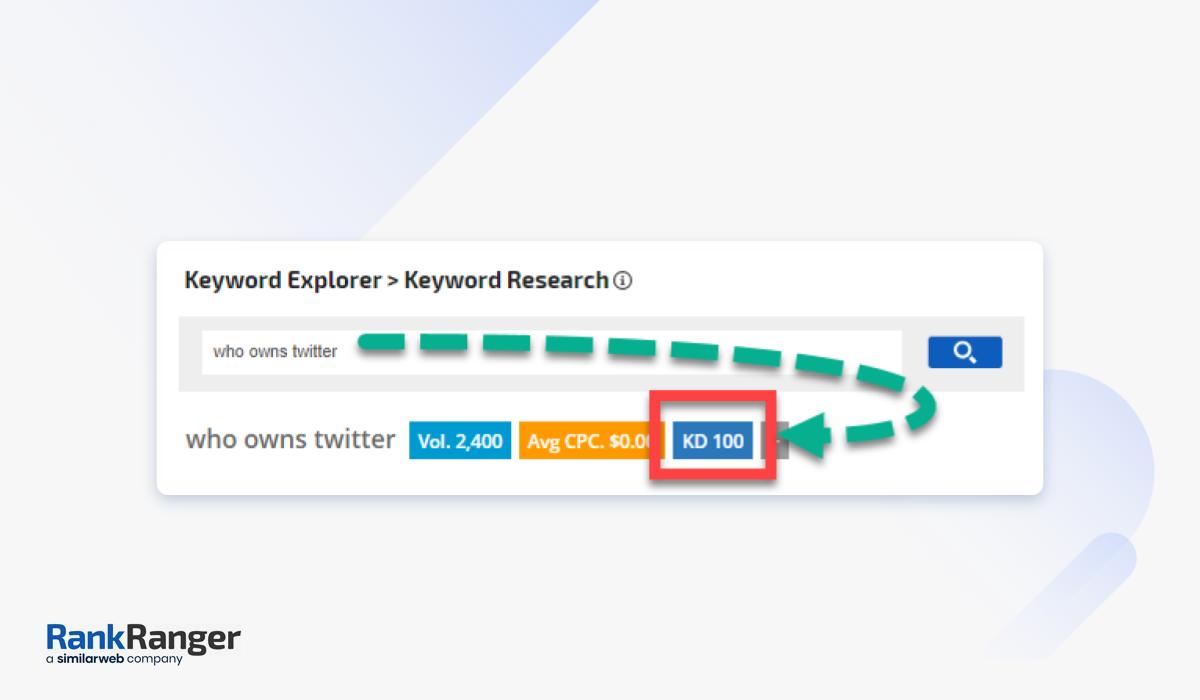
What’s more, you can see the KD score displayed in our Related Keywords, Questions, and Related Topics charts so you can easily find keywords that your content can compete with.
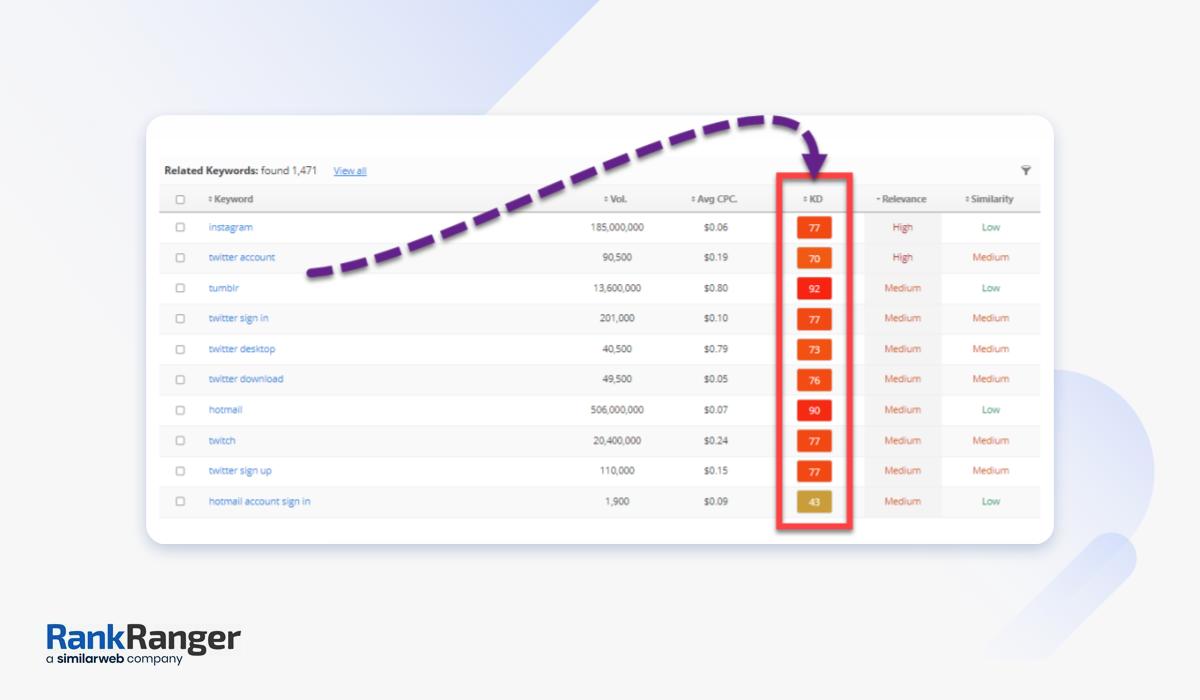
Sounds awesome?
Okay, let’s cover how you can set it up in your Rank Ranger account.
How Can I Set Up Similarweb Keyword Volumes for My Account?
It’s important to note that we don’t set the Similarweb search volumes automatically. The reason is many of our users are accustomed to having search volumes from Keyword Planner.
But we want you to have the best data possible.
This means you’ll have to set this up manually. But the good news is that it’ll literally take you a second.
Simply go to the Keywords tab on the General Settings page.
Once you are there, scroll down to the Search Volume heading.
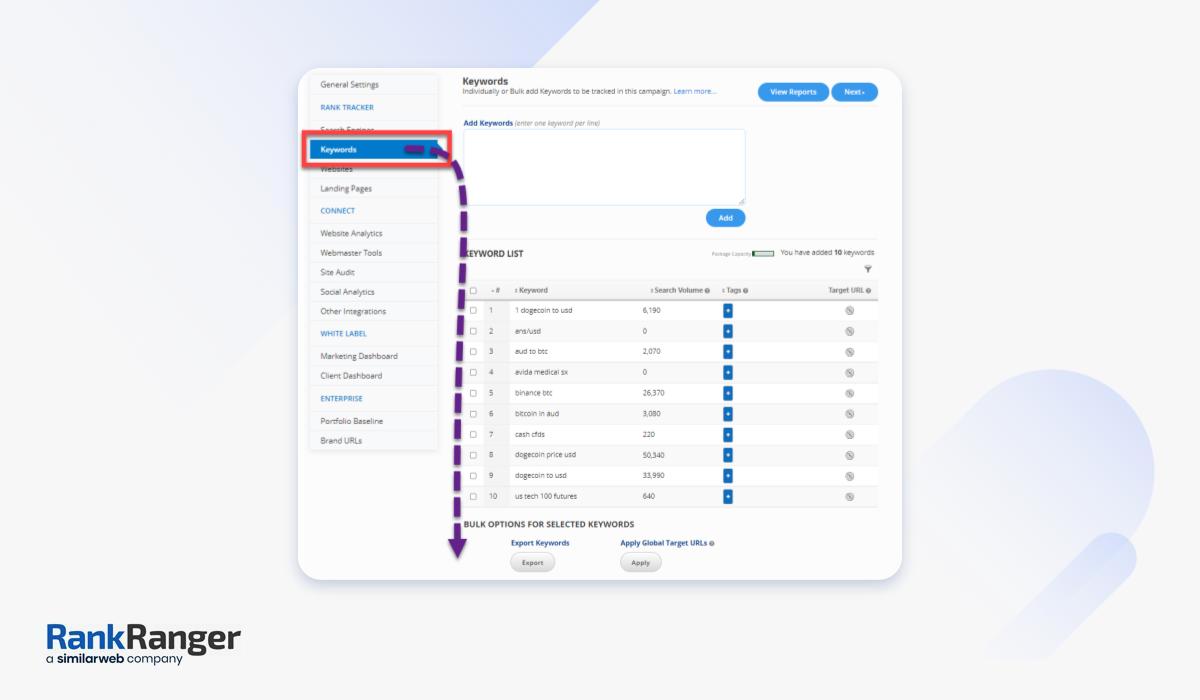
Click the dropdown menu and click Similarweb.
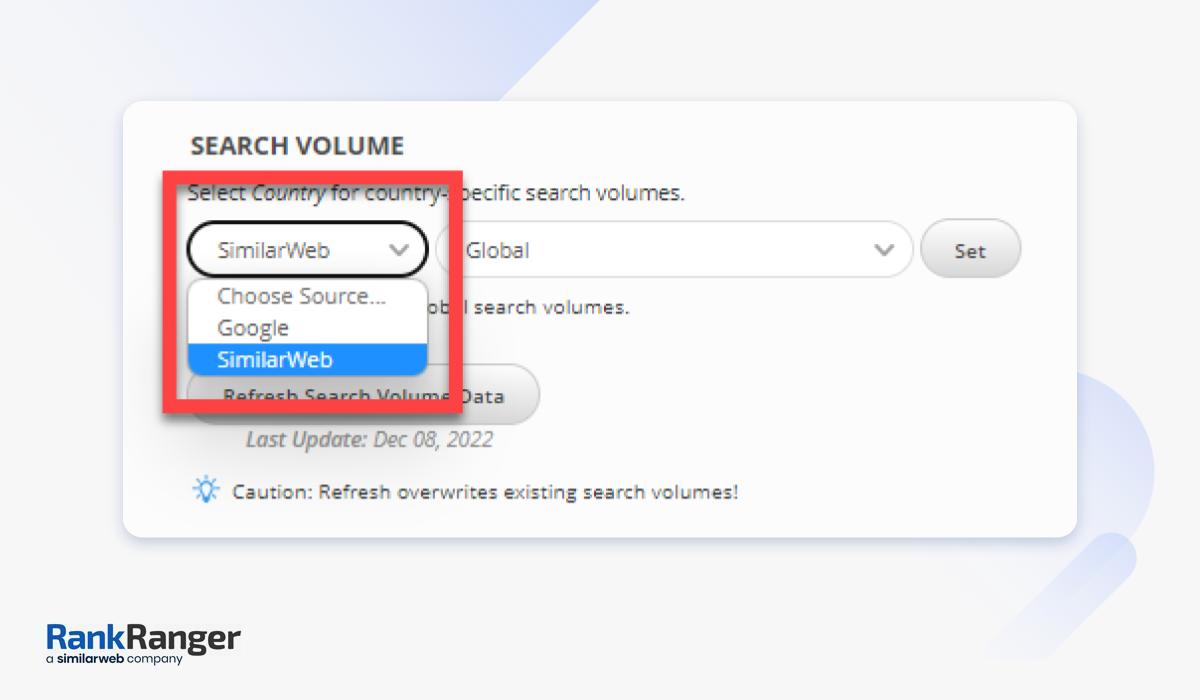
Next, click the region dropdown and pick the region you want to see search volumes for.
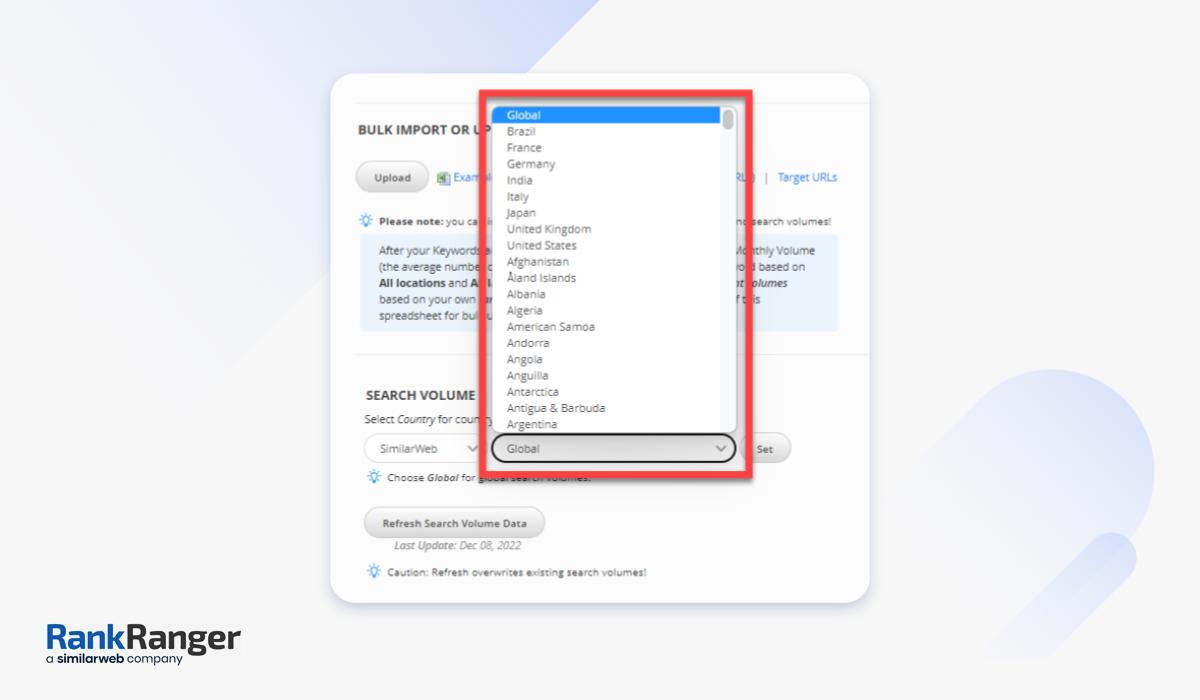
Hit ‘Set’, then click ‘Refresh Search Volume Data’ and you’re done.
Improving Your Rank Tracking One Metric at a Time
As you can see, we are committed to improving the quality of your marketing data.
Because we understand that data is your most valuable asset. And, if you increase the quality of your data, its value increases.
You gain a better understanding of your marketing. You have better insights.
I hope that you make full use of this new addition to our tool and we hope to continuously improve how Rank Ranger serves your business.

